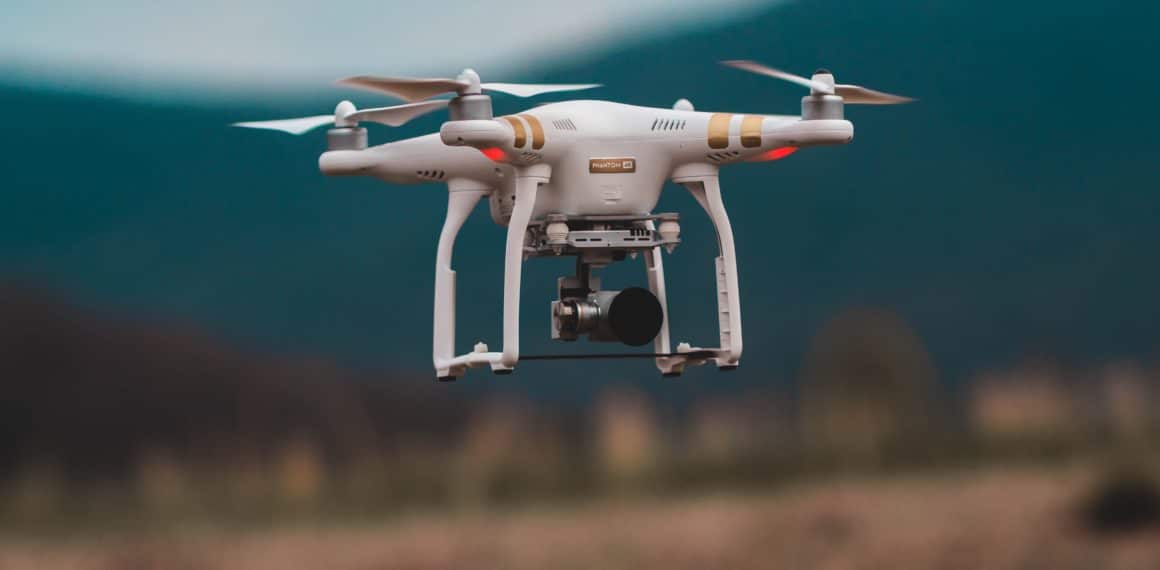What to Do If a Drone Is Spying on You: Professional Tips?
The rise of drones has transformed numerous fields, including photography. Drones allow photographers to capture stunning aerial shots, pushing creative boundaries. However, with their increasing prevalence, many may find themselves asking, 'What to do if a drone is spying on you?' This concern is especially pertinent for professional photographers navigating today's complex privacy landscape.
When it comes to aerial photography or videography, drones have become invaluable tools. Yet, the same technology designed for creativity can be misused for spying. Understanding the implications of drone surveillance is essential for photographers who value their privacy and safety.

Understanding Drones and Privacy Issues
Drones can easily invade personal privacy due to their capability to fly undetected in many environments. With advances in technology, some drones are equipped with high-resolution cameras, which can capture details without your knowledge.
Professional photographers should be aware of the legal and ethical standards surrounding drone use. Understanding the potential situations where a drone can invade privacy helps you know when to take action.
Identifying Drones: How to Recognize One in Your Area
Many people do not realize that there are specific signs indicating a drone is nearby. When trying to determine what to do if a drone is spying on you, the first step is to identify it:
- Visual Identification: Look for small aircraft hovering in your area. Drones usually have a distinct shape, with four rotors.
- Sound: Drones often produce a buzzing sound that can draw attention.
- Flight Patterns: Observe any unusual flight patterns, especially if they hover in one place.
Once you have identified the presence of a drone, further actions can be considered, which we will discuss shortly.
Legal Rights and Regulations Concerning Drone Use
Professional photographers should familiarize themselves with local regulations. Every country has set legal boundaries regarding drone operation. In the United States, for instance, the FAA provides guidelines ensuring responsible drone use. Knowing these regulations will help you understand your rights.
If a drone is caught invading your space, consider your legal options. It's often advisable to document the situationtaking pictures or even video can help substantiate your claim against unauthorized surveillance.
What to Do When You Suspect a Drone Is Spying on You
If you find yourself questioning what to do if a drone is spying on you, consider acting on the following tips:
- Document the Incident: Capture photographs or videos of the drone and its location. This can serve as evidence.
- Contact Authorities: Report your concerns to local law enforcement or aerial surveillance agencies.
- Employ Drone Detection Technologies: Tools and apps designed to detect drones can help you identify unwanted surveillance.
- Talk to the Operator: If you feel safe doing so, consider approaching the drone operator to express your concerns.
- Protect Your Privacy: Consider privacy measures for your residence or workplace, like installing privacy screens or planting foliage to block aerial views.
For professional photographers, maintaining a comfortable working environment is crucial, and knowing how to handle potential drone invasions is part of that.
Tools to Help Manage Drone Surveillance
As the threat of unwanted surveillance looms, various tools can aid photographers in identifying and managing potential threats:
- Drone Detection Apps: These apps help identify nearby drone activity, alerting you to potential privacy breaches.
- Noise-Canceling Technology: While not directly related to drone detection, this technology helps drown out the sound of drones.
- Drone Jamming Devices: Although controversial and often illegal, some devices claim to disrupt drone signals. Its essential to understand local laws before considering this option.
For those interested in preventing nuisances from being filmed further, utilizing tools like drone detection can be a significant first step. You can further explore this by reading about drone detection.
Maintaining Ethical Standards in Photography
As a professional photographer, consider your own ethics when it comes to shooting with drones. Ensuring that your activities do not contribute to privacy violations will keep you on the right side of the law. Be mindful of the areas in which you fly and always seek permission when required.
Your actions matter, and respecting the privacy of others is crucial. Be conscious of other properties or people who may not want to be photographed without consent.
Common Questions About Drone Surveillance
1. Is it legal for someone to use a drone to photograph me?
The legality varies by region. In many places, capturing images in public spaces is allowed, but invading private spaces is generally prohibited.
2. Can I shoot down a drone that I believe is spying on me?
No, shooting down a drone is illegal and considered destruction of property. Instead, consider legal steps or reporting to authorities.
3. Do I have the right to privacy from drones?
Yes, individuals have the right to privacy, especially in private spaces. Familiarize yourself with local laws governing drone use.

Conclusion: Protecting Your Professional Space
Understanding what to do if a drone is spying on you is crucial, especially for professional photographers. By staying informed, documenting suspicious activity, and knowing your legal rights, you can protect your creative space while maintaining a strong ethical stance within your profession.
As drones become part of the mainstream, their implications for privacy and security will continue to evolve. Stay ahead by remaining knowledgeable about the legal landscape, recognizing surveillance tactics, and being proactive about your rights.
For more resources related to drones and photography, check out this article about cost of drones and also read about editing drone footage.

